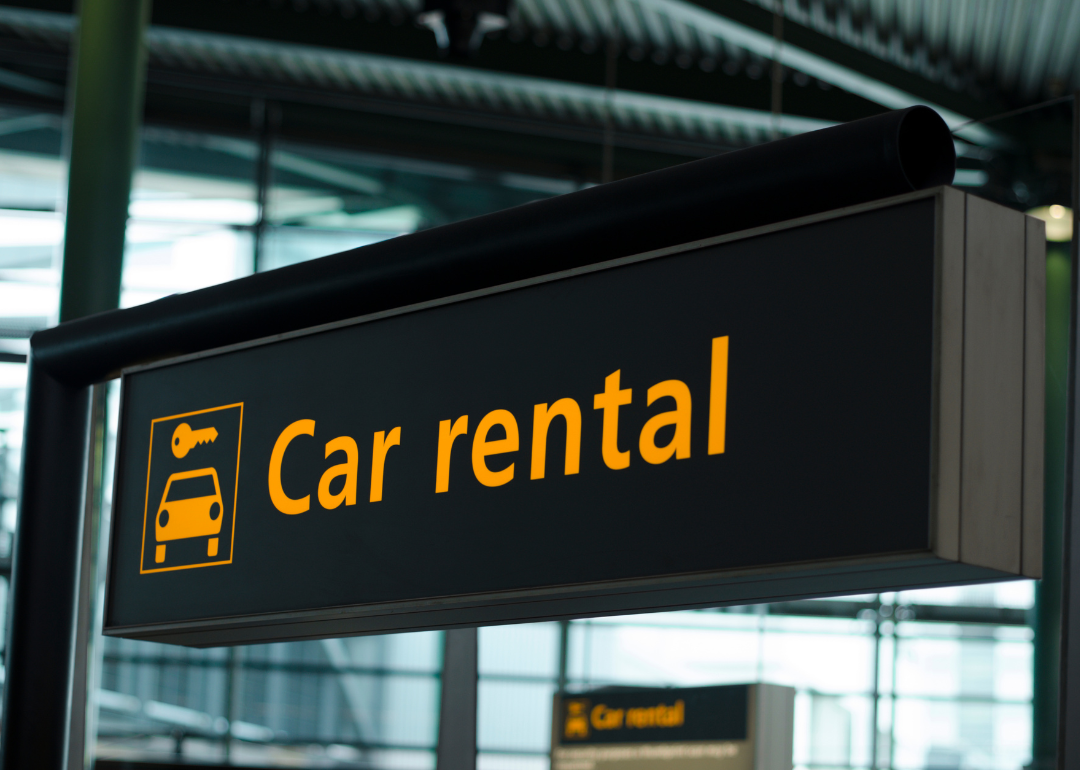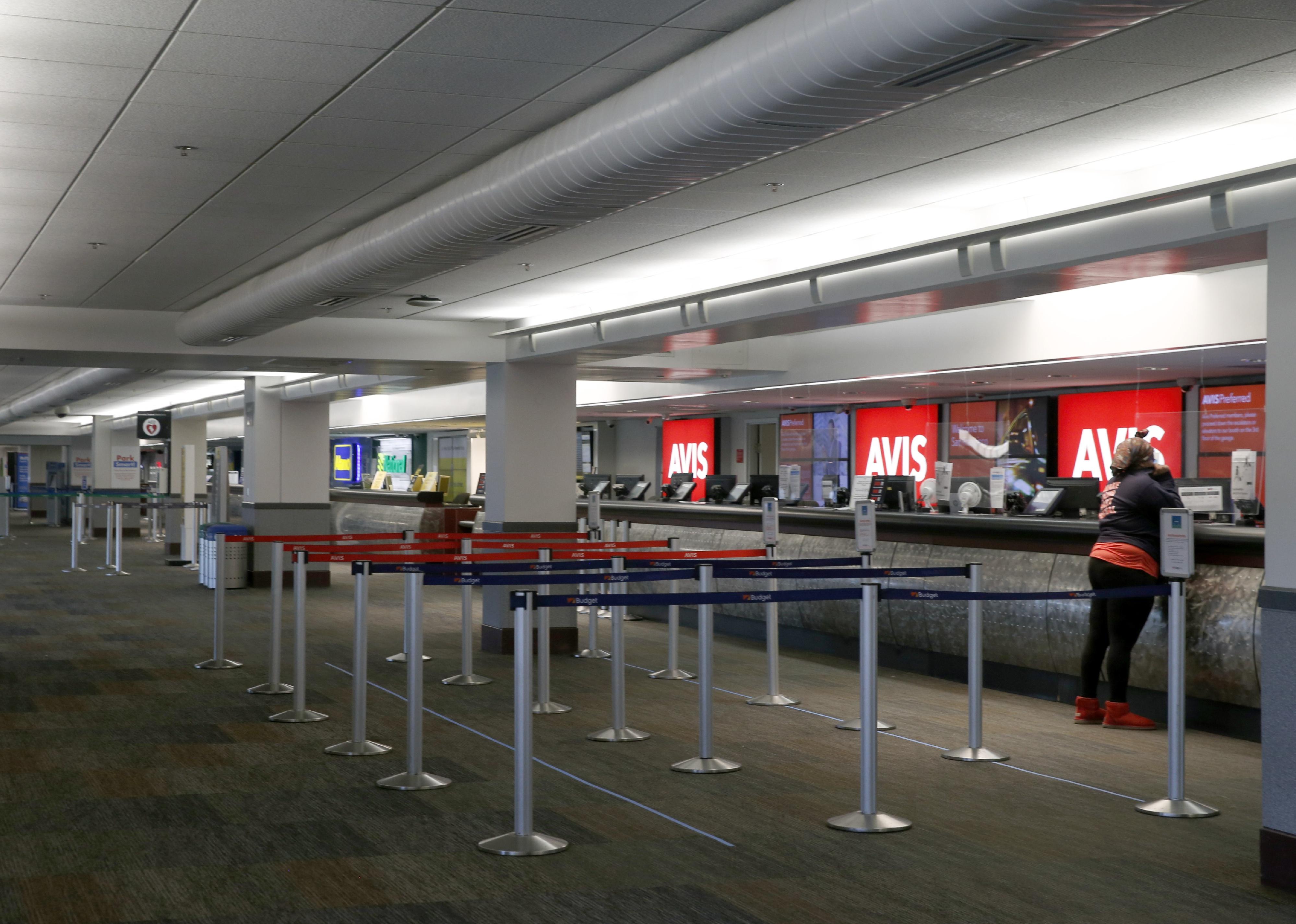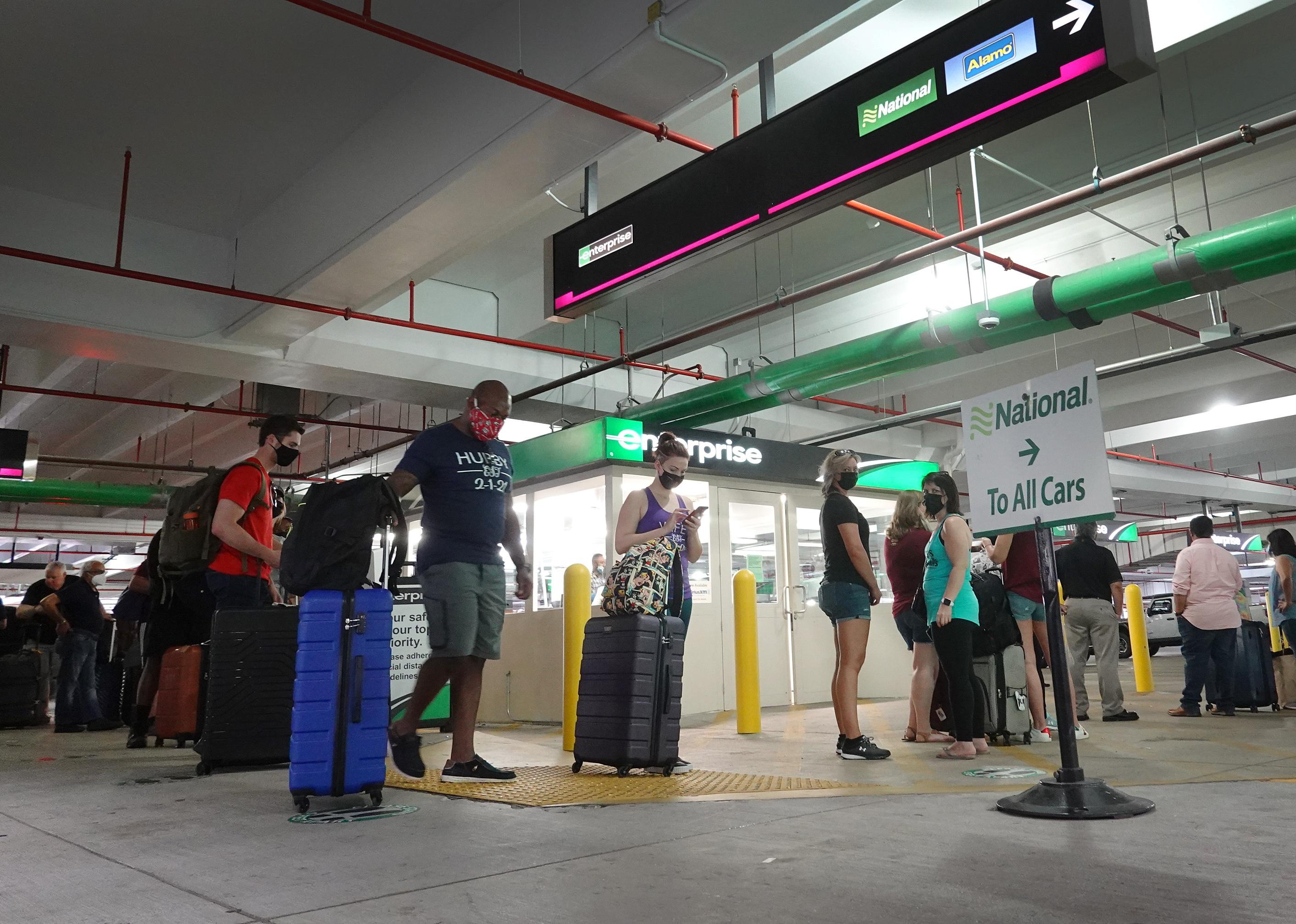The truth about car rental insurance: Do you really need it?
Canva
The truth about car rental insurance: Do you really need it?
A black and orange car rental sign.
No one wants to be taken for a ride by a car rental company; however, most people also don’t want to be on the hook for the rented vehicle should they get into an accident or fall victim to vandalism. Knowing more about car rental insurance can help you make the best decision and get affordable coverage if you need it.
Cheapinsurance.com analyzed existing state and federal laws as well as data from government sources and pricing information from rental vehicle providers to determine the actual value of purchasing insurance for your next car rental.
Insurance options from rental car providers include a collision damage waiver, liability insurance, personal accident insurance, and personal effects coverage. These products cover a variety of incidents ranging from vandalism, theft, or fire to medical bills for the renter and passengers. While these insurance coverages protect renters, they do so at a cost—one that can be cost-prohibitive for many people.
On average, U.S. consumers spent $1,528 on their auto insurance policies in 2021, according to the Bureau of Labor Statistics, representing a 43% increase in costs over the last decade. These insurance plans are generally mandated and can be beneficial. Many of these personal auto insurance plans include some type of coverage for the driver, even if they’re in a rental car. So knowing what insurance covers—and what it doesn’t—is an important factor when considering whether to purchase insurance offered by a rental car company.
![]()
alexfan32 // Shutterstock
Nearly every state requires auto insurance by law, but not for rental vehicles
A row of small SUVs parked outside.
All states except New Hampshire and Virginia require that drivers have at least a minimum level of auto insurance coverage.
States that require insurance can impose five fundamental forms of coverage: All states requiring some form of coverage except Florida require the inclusion of bodily injury insurance, while all states requiring insurance and Washington D.C. require property damage liability coverage. In addition, nearly half of these states mandate some form of uninsured or underinsured motorist coverage. Only a few states require personal injury protection. These are standard offerings, and companies generally price them accordingly.
Insurance coverage by rental companies is more elaborate. Opting for their plans can provide drivers with Basic Liability Coverage, Collision Damage/Loss Damage Waivers, Supplemental Liability Coverage, Personal Accident Insurance, and Personal Effects Coverage.
Paul Chinn/The San Francisco Chronicle // Getty Images
What rental insurance buys you
A person stands at a rental car counter.
In addition to the bare minimum required by the state, rental car insurance offers more protection. Generally, prices range from about $31-$60 per day for rental insurance from popular providers like Budget and Enterprise Rent-A-Car. At Enterprise Rent-A-Car, Loss Damage Waiver costs around $30; liability coverage costs about $15; and personal accident insurance costs roughly $13, bringing the total daily rental car insurance cost to $60.
On the more cost-efficient side, Budget Rent-A-Car charges $9 for loss damage waiver, $15 for liability coverage, and $7 for personal accident insurance, making daily rental car insurance $31. The collision damage waiver covers the cost of repairs for vehicular damages caused by accidents, fire, vandalism, theft, and other similar cases, according to NAIC, the U.S. regulator for insurance commissioners.
Liability insurance covers medical bills and damages to another person’s property. Similarly, personal accident insurance covers the renter’s and passenger’s medical bills, while personal effects coverage covers theft of personal belongings stolen from the rental.
Joe Raedle // Getty Images
Ways you can avoid spending extra on rental car insurance
People stand in line in a rental car parking garage.
Car rental insurance can be pretty pricey depending on how much coverage you buy and where you rent the automobile. While the pricing might be out of your control, there are ways you can save a penny or two. Before buying rental car insurance, check your car insurance policy. In some cases, the insurance might extend to rental cars if they are for travel use only.
Credit card companies also offer insurance for customers who reserve and pay for their rental cars with their cards. Typically, credit card insurance only covers short-term leases; in some instances, the maximum period is 15 days. Another alternative to rental car insurance is nonowned auto coverage, which provides coverage for vehicles you don’t own. It’s beneficial because it saves you the stress of buying a new policy every time you rent a car.
That said, if you have a more comprehensive personal auto insurance plan than the basic one—especially if you have collision insurance already—you may not need additional coverage. Insurance plans vary widely, so do your research before making this decision.
Song_about_summer // Shutterstock
Rental cars are involved in more accidents than personal vehicles
A person driving on a mountain road.
Car rental insurance can often be worth the additional cost. Research shows that rental vehicles have a higher accident rate than nonrented vehicles. The higher accident rate puts the high premiums associated with rental car insurance into perspective.
Several factors contribute to the elevated accident rate. For instance, many car renters engage in riskier driving than they would in their own vehicles. People renting cars are also usually doing so away from home—where traffic patterns and rules may differ from what they’re accustomed to—leading to reduced adherence to traffic regulations. And many rental car drivers are young and inexperienced behind the wheel.
Apart from the behavioral causes of accidents by rental car drivers, the increasing popularity of rental vehicles on the highways will likely push the number of traffic accidents involving them upward. All in all, make sure you have coverage—either through your own provider or a rental car company’s provider—to protect yourself from the potentially steep costs associated with repairing damaged vehicles.
This story originally appeared on Cheapinsurance.com and was produced and
distributed in partnership with Stacker Studio.




